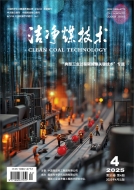Research status and advances of mobile solid oxide fuel cell systemintegration technology
 2024 No. 05
2024 No. 05
 948
948 319
319

Citation format:

Authors:
- ZHANG Ruiyu
- SHI Jixin
- WANG Yuqing
- SHI Yixiang

Unit:
- School of Mechatronical Engineering,Beijing Institute of Technology
- Department of Energy and Power Engineering,Tsinghua University

Abstract:
Solid oxide fuel cells ( SOFCs) are energy conversion devices that can convert the chemical energy in fuels into electricitythrough electrochemical reactions. At present, SOFC is mostly regarded as a stationary power generation technology. However, due to itsfuel flexibility, high efficiency, and high energy density, it also has broad application prospects in the field of mobile power generation,such as auxiliary power, drone power, remote power supply, etc. Compared to the stationary applications of SOFCs, the progress towardthe mobile applications of SOFCs starts relatively late and the technology is relatively incomplete. Mobile SOFC systems typically consistof SOFC stacks, fuel supply systems, oxygen supply systems, thermal management systems, and power management systems. When developing SOFC mobile systems, system robustness, ease of use, and power generation capacity should be considered. However, the components of mobile SOFC systems are relatively complex, and the coupling and matching characteristics of these components will significantlyaffect the system compactness, startup characteristics, and volume/ mass power density of the system. This paper provided a review of thedomestic and international research progress on the integration technologies of mobile SOFC systems, covering aspects such as thermal characteristics, startup strategies, and the integration of high-power density hybrid systems. Finally, based on a summary of existingresearch findings, the challenges in the future integration of mobile SOFC systems were identified, along with such directions for developmentas improvements in materials and processes, the exploration of novel startup strategies, and the design and optimization of hybrid systems.

Keywords:
- solid oxide fuel cells
- mobile applications
- hot zone integration
- rapid start-up
- hybrid power systems

Citation format:

Chart:

Articles:

-
Executive director
China Coal Science and Industry Group Co., Ltd
-
Sponsored by
Coal Science Research Institute Co., Ltd
Coal Industry Clean Coal Engineering
Technology Research Center -
Editor in Chief
XIE Qiang
-
Vice Editor-in-Chief
YU Chang
SHI Yixiang
ZHAO Yongchun
DUAN Linbo
CAO Jingpei
ZENG Jie -
Publication Frequencies
Monthly
-
ISSN
1006-6772
-
CN
11-3676/TD
Covered by
- CSTPCD
- RCCSE(A+)
- AJ
- EBSCO host
- Ulrichsweb
- JST
- Scopus
Contact us
New Media
-
 Meichuanmei
Meichuanmei -
 Clean Coal Technology
Clean Coal Technology -
 Online Journals
Online Journals









 Submission system
Submission system Copyright agreement
Copyright agreement Instructions for authors
Instructions for authors